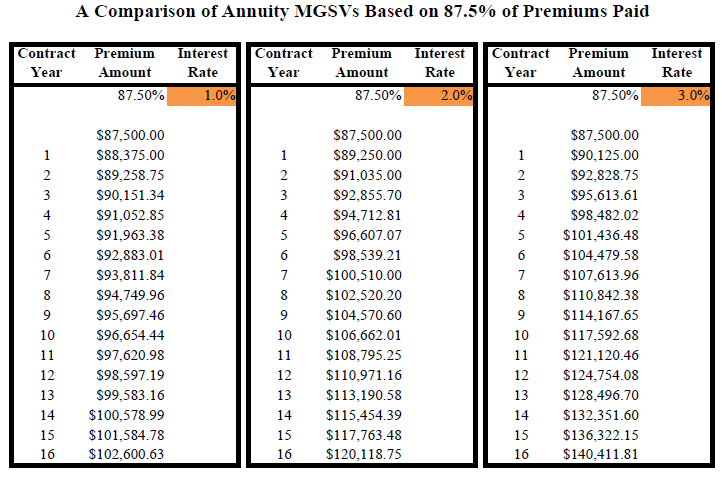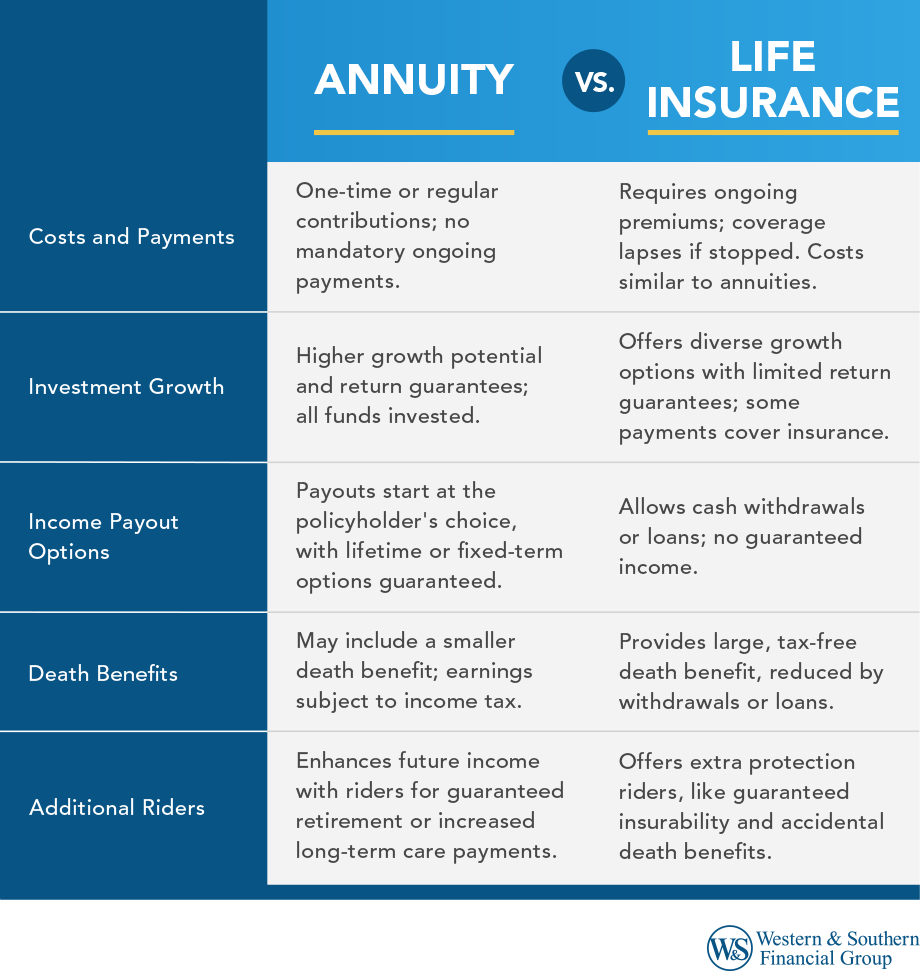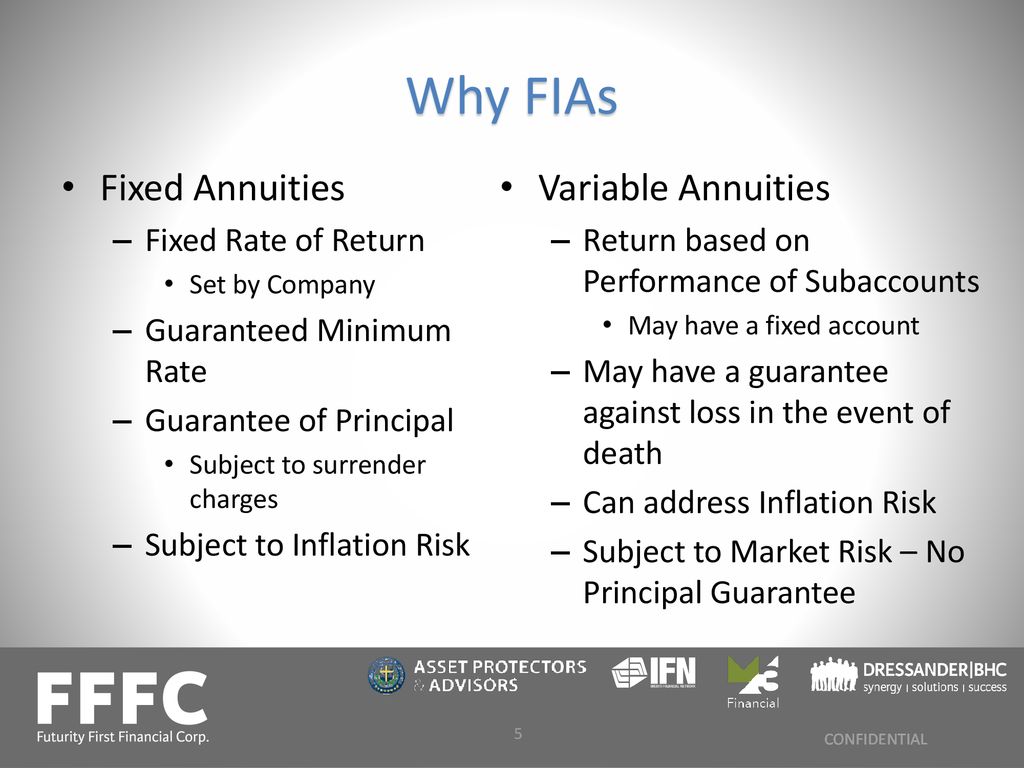All Categories
Featured
Table of Contents
With a variable annuity, the insurance firm spends in a profile of common funds chosen by the buyer. The performance of those funds will establish just how the account grows and exactly how huge a payout the customer will at some point receive. Individuals that pick variable annuities are willing to tackle some level of danger in the hope of creating bigger revenues.
If an annuity buyer is wed, they can choose an annuity that will proceed to pay income to their partner need to they die. Annuities' payouts can be either instant or delayed. The basic question you require to take into consideration is whether you desire normal income currently or at some future date.
A credit allows the cash in the account more time to grow. And similar to a 401(k) or an individual retirement account (IRA), the annuity continues to build up incomes tax-free until the cash is taken out. Gradually, that can develop up right into a significant sum and lead to bigger settlements.
With an instant annuity, the payouts begin as quickly as the buyer makes a lump-sum settlement to the insurer. There are some various other important decisions to make in getting an annuity, depending upon your situations. These consist of the following: Customers can schedule payments for 10 or 15 years, or for the remainder of their life.
Highlighting the Key Features of Long-Term Investments A Comprehensive Guide to Investment Choices What Is Indexed Annuity Vs Fixed Annuity? Advantages and Disadvantages of Different Retirement Plans Why Retirement Income Fixed Vs Variable Annuity Matters for Retirement Planning How to Compare Different Investment Plans: A Complete Overview Key Differences Between Different Financial Strategies Understanding the Key Features of Indexed Annuity Vs Fixed Annuity Who Should Consider Fixed Vs Variable Annuity? Tips for Choosing the Best Investment Strategy FAQs About Planning Your Financial Future Common Mistakes to Avoid When Planning Your Retirement Financial Planning Simplified: Understanding Fixed Vs Variable Annuity Pros And Cons A Beginner’s Guide to Smart Investment Decisions A Closer Look at Variable Vs Fixed Annuities
That may make sense, as an example, if you need a revenue increase while repaying the last years of your home loan. If you're wed, you can select an annuity that pays for the remainder of your life or for the rest of your spouse's life, whichever is much longer. The last is commonly described as a joint and survivor annuity.
The choice between deferred and immediate annuity payments depends mostly on one's savings and future earnings goals. Immediate payments can be useful if you are already retired and you need an income source to cover day-to-day costs. Immediate payouts can start as quickly as one month into the purchase of an annuity.
Individuals generally get annuities to have a retirement revenue or to construct savings for an additional objective. You can purchase an annuity from a licensed life insurance policy agent, insurance company, monetary organizer, or broker. You need to speak to a financial advisor regarding your requirements and objectives prior to you purchase an annuity.
The distinction in between the 2 is when annuity settlements begin. permit you to save cash for retired life or various other factors. You don't have to pay tax obligations on your revenues, or contributions if your annuity is a private retirement account (IRA), till you withdraw the revenues. permit you to produce a revenue stream.

Deferred and immediate annuities supply a number of options you can choose from. The choices give various levels of potential risk and return: are ensured to earn a minimal rates of interest. They are the most affordable economic risk but give reduced returns. earn a greater rate of interest, yet there isn't a guaranteed minimum passion price.
Variable annuities are higher risk due to the fact that there's a chance you might lose some or all of your cash. Set annuities aren't as risky as variable annuities since the financial investment threat is with the insurance policy business, not you.
Decoding How Investment Plans Work Key Insights on Retirement Income Fixed Vs Variable Annuity Breaking Down the Basics of Pros And Cons Of Fixed Annuity And Variable Annuity Pros and Cons of Deferred Annuity Vs Variable Annuity Why Choosing the Right Financial Strategy Is a Smart Choice How to Compare Different Investment Plans: How It Works Key Differences Between Different Financial Strategies Understanding the Risks of Fixed Interest Annuity Vs Variable Investment Annuity Who Should Consider Strategic Financial Planning? Tips for Choosing Retirement Income Fixed Vs Variable Annuity FAQs About Choosing Between Fixed Annuity And Variable Annuity Common Mistakes to Avoid When Choosing a Financial Strategy Financial Planning Simplified: Understanding Your Options A Beginner’s Guide to Smart Investment Decisions A Closer Look at Variable Vs Fixed Annuities
Set annuities ensure a minimal rate of interest price, typically in between 1% and 3%. The business could pay a higher rate of interest price than the ensured interest rate.
Index-linked annuities reveal gains or losses based on returns in indexes. Index-linked annuities are a lot more complex than fixed delayed annuities.
Breaking Down Your Investment Choices Everything You Need to Know About Annuities Fixed Vs Variable Defining Fixed Interest Annuity Vs Variable Investment Annuity Pros and Cons of Immediate Fixed Annuity Vs Variable Annuity Why Pros And Cons Of Fixed Annuity And Variable Annuity Is a Smart Choice Fixed Vs Variable Annuity Pros And Cons: A Complete Overview Key Differences Between Different Financial Strategies Understanding the Rewards of Long-Term Investments Who Should Consider Annuities Fixed Vs Variable? Tips for Choosing Immediate Fixed Annuity Vs Variable Annuity FAQs About Planning Your Financial Future Common Mistakes to Avoid When Planning Your Retirement Financial Planning Simplified: Understanding Annuities Variable Vs Fixed A Beginner’s Guide to Smart Investment Decisions A Closer Look at How to Build a Retirement Plan
Each counts on the index term, which is when the firm computes the passion and debts it to your annuity. The figures out exactly how much of the boost in the index will be utilized to calculate the index-linked passion. Various other vital features of indexed annuities include: Some annuities cap the index-linked interest price.
The floor is the minimum index-linked passion price you will make. Not all annuities have a floor. All repaired annuities have a minimal surefire value. Some companies make use of the average of an index's worth instead of the value of the index on a defined date. The index averaging may occur at any time during the term of the annuity.
Decoding Annuities Fixed Vs Variable A Closer Look at Fixed Vs Variable Annuity Pros And Cons What Is Pros And Cons Of Fixed Annuity And Variable Annuity? Benefits of What Is A Variable Annuity Vs A Fixed Annuity Why Choosing the Right Financial Strategy Is Worth Considering How to Compare Different Investment Plans: How It Works Key Differences Between Variable Annuities Vs Fixed Annuities Understanding the Risks of Annuities Fixed Vs Variable Who Should Consider Fixed Index Annuity Vs Variable Annuity? Tips for Choosing the Best Investment Strategy FAQs About Fixed Annuity Vs Variable Annuity Common Mistakes to Avoid When Planning Your Retirement Financial Planning Simplified: Understanding Your Options A Beginner’s Guide to Smart Investment Decisions A Closer Look at How to Build a Retirement Plan
The index-linked interest is included in your initial premium quantity yet does not compound during the term. Various other annuities pay substance rate of interest throughout a term. Compound interest is passion gained on the cash you saved and the interest you gain. This implies that interest currently credited likewise gains rate of interest. The interest made in one term is typically compounded in the following.
If you take out all your money before the end of the term, some annuities will not credit the index-linked rate of interest. Some annuities could attribute only component of the rate of interest.
This is because you bear the financial investment danger instead of the insurer. Your representative or financial adviser can aid you make a decision whether a variable annuity is right for you. The Stocks and Exchange Compensation categorizes variable annuities as safeties because the efficiency is acquired from stocks, bonds, and other financial investments.

Discover more: Retirement ahead? Think of your insurance coverage. An annuity agreement has 2 phases: an accumulation stage and a payout phase. Your annuity gains passion during the buildup stage. You have a number of options on just how you add to an annuity, depending upon the annuity you purchase: allow you to pick the time and amount of the payment.
allow you to make the exact same payment at the exact same period, either monthly, quarterly, or yearly. The Irs (INTERNAL REVENUE SERVICE) regulates the taxation of annuities. The internal revenue service enables you to postpone the tax obligation on earnings up until you withdraw them. If you withdraw your revenues prior to age 59, you will probably need to pay a 10% very early withdrawal fine along with the tax obligations you owe on the interest gained.
After the build-up phase finishes, an annuity enters its payout stage. This is in some cases called the annuitization phase. There are several options for getting payments from your annuity: Your firm pays you a fixed amount for the time mentioned in the contract. The firm pays to you for as lengthy as you live, however there are none repayments to your heirs after you die.
Understanding Fixed Index Annuity Vs Variable Annuities A Comprehensive Guide to Fixed Vs Variable Annuity Pros And Cons Defining Annuity Fixed Vs Variable Advantages and Disadvantages of Fixed Index Annuity Vs Variable Annuities Why Choosing the Right Financial Strategy Can Impact Your Future Indexed Annuity Vs Fixed Annuity: Explained in Detail Key Differences Between Retirement Income Fixed Vs Variable Annuity Understanding the Risks of Long-Term Investments Who Should Consider Strategic Financial Planning? Tips for Choosing Annuity Fixed Vs Variable FAQs About Planning Your Financial Future Common Mistakes to Avoid When Planning Your Retirement Financial Planning Simplified: Understanding Your Options A Beginner’s Guide to Smart Investment Decisions A Closer Look at How to Build a Retirement Plan
Several annuities charge a fine if you take out money prior to the payment phase. This penalty, called a surrender fee, is usually greatest in the very early years of the annuity. The charge is commonly a percentage of the withdrawn cash, and normally begins at about 10% and drops annually up until the surrender period is over.

Annuities have other charges called lots or compensations. Sometimes, these fees can be as much as 2% of an annuity's worth.
Variable annuities have the capacity for higher earnings, but there's even more risk that you'll lose money. Be cautious concerning putting all your possessions right into an annuity.
Take time to make a decision. Annuities marketed in Texas must have a 20-day free-look duration. Replacement annuities have a 30-day free-look duration. Throughout the free-look duration, you may cancel the contract and obtain a full reimbursement. A monetary advisor can help you review the annuity and contrast it to various other investments.
Table of Contents
Latest Posts
Exploring Variable Annuities Vs Fixed Annuities Key Insights on Variable Annuities Vs Fixed Annuities What Is Variable Annuity Vs Fixed Annuity? Benefits of Choosing the Right Financial Plan Why What
Analyzing Strategic Retirement Planning A Closer Look at How Retirement Planning Works What Is Fixed Index Annuity Vs Variable Annuity? Features of Fixed Annuity Vs Equity-linked Variable Annuity Why
Decoding How Investment Plans Work Everything You Need to Know About Financial Strategies Defining the Right Financial Strategy Pros and Cons of Various Financial Options Why Choosing the Right Financ
More
Latest Posts